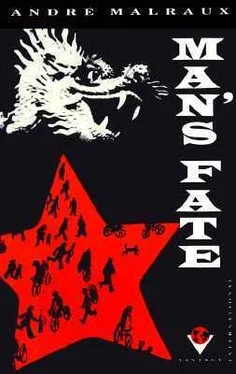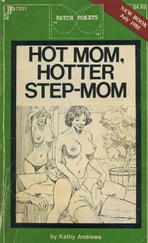FERRAL, fanning himself with the newspaper in which the Consortium was being most violently attacked, was the last to arrive in the waiting-room of the Minister of Finance: in groups were waiting the vice-director of the Mouvement General des Forads-Ferral’s brother had wisely fallen ill the week before-the representative of the Bank of France, the representative of the principal French business-bank, and those of the credit establishments. Ferral knew them all: one son, one son-in- law, and former officials of the Mouvement General des Forads; the link between the State and the Establishments was too close for the latter not to consider it in their interest to attach to themselves officials who were favorably received by their former colleagues. Ferral observed their surprise: ordinarily he would have been the first one there; not seeing him there, they had thought he had not been invited to be present. That he should permit himself to come last suprised them. Everything separated them: what he thought of them, what they thought of him, their manner of dress: almost all were dressed with an impersonal carelessness, and Ferral was wearing his wrinkled tweed suit and the gray silk shirt with a soft collar from Shanghai. Two races.
They were almost immediately admitted.
Ferral knew the minister only slightly. Was that facial expression which recalled another age due to his white
hair, thick like that of the wigs of the Regency? That delicate face with its bright eyes, that open smile-he was an old Parliamentarian-accorded with the tradition of ministerial courtesy; a tradition which ran parallel to that of his brusqueness when he was bitten by a Napoleonic fly. While everyone was taking his seat, Ferral thought of a famous anecdote: the minister-then Minister of Foreign Affairs-on one occasion upon pulling the coattail of the French envoy to Morocco, had caused the seam suddenly to rip up the back; he rang for the doorkeeper: “Bring one of my coats for Monsieur!” then rang again just as the door-keeper was leaving: “The oldest one! He doesn’t deserve another!” His face would have been very attractive but for the expression of the eyes which seemed to deny what his mouth promised: he had one glass eye.
They were all seated: the director of the Mouvement General at the right of the minister, Ferral at his left; the representatives, at the other end of the office, on a couch.
“You know, gentlemen, why I have called you. You have no doubt examined the question. I leave M. Ferral to summarize it for you and to present his point of view.”
The representatives patiently waited for Ferral to tell them fantastic tales, as usual.
“Gentlemen,” said Ferral, “it is customary in a conference like this to present an optimistic picture. You have before you the report of the Inspection of Finance. The situation of the Consortium is, practically speaking, worse than this report would lead one to assume. I submit to you neither exaggerated items nor uncertain credits. The liabilities of the Consortium you know, obviously; I wish to call your attention to two points in the assets which no balance-sheet can indicate, and on the strength of which your aid is requested.
“The first is that the Consortium represents the only French enterprise of its kind in the Far East. Even though it showed a deficit, even though it were on the verge of bankruptcy, its structure would remain intact. Its network of agents, its trading-posts in the interior of China, the connections established between its Chinese buyers and its Indo-Chinese production companies, all that exists and can be maintained. I don't exaggerate in saying that, for half the merchants of the Yangtze, France means the Consortium, as Japan is the Mitsubishi Company; our organization, as you know, can be compared in its scope with the Standard Oil. Now, the Chinese Revolution will not be eternal.
“The second point: thanks to the bonds that unite the Consortium to a great part of Chinese commerce, I have participated in the most effective way in the seizure of power by General Chiang Kai-shek. It is now definitely settled that the share in the construction of the Chinese Railways promised to France by the treaties will be given to the Consortium. You know its importance. It is upon this point that I ask you to base your decision in granting to the Consortium the aid which it requests of you; it is because of its presence that it appears to me defensible to wish that the only powerful organization which represents our country in Asia should not disappear-even though it were to leave the hands of those who have founded it.”
The representatives were carefully examining the balance-sheet, with which, for that matter, they were already familiar, and which could tell them nothing new: all were waiting for the minister to speak.
“It is not only to the interest of the State,” said the latter, “but also to that of the Establishments that credit should not be endangered. The fall of such important organizations as the Industrial Bank of China, as the Consortium, cannot but be a serious blow to all. ”
He was speaking nonchalantly, leaning back in his armchair, looking off into space, tapping the blotting paper in front of him with the tip of his pencil. The representatives were waiting for his attitude to become more precise.
“Will you allow me, Sir,” said the Representative of the Bank of France, “to submit to you a somewhat different opinion. I am the only one here who does not represent a credit establishment, and I am therefore impartial. For several months the crashes have caused the deposits to diminish, it is true; but, after six months, the sums withdrawn automatically return, and precisely in the principal establishments, those which offer the most guarantees. Perhaps the fall of the Consortium, far from being prejudicial to the establishments which these gentlemen represent, would on the contrary be favorable to them. ”
“Except for this, that it is always dangerous to play with credits: fifteen provincial bank failures would not be profitable to the Establishments, if for no other reason than that of the political measures which they would call for.”
All this means nothing, thought Ferral, if not that the Bank of France is afraid of being involved and having to pay if the establishments pay. Silence. The questioning look of the minister met that of one of the representatives: the face of a cavalry lieutenant, a piercing look ready to reprimand, a sharp voice:
“I must confess that I am a little less pessimistic than M. Ferral on the aggregate of the items in the balance- sheet which we have before us. The situation of the banks of the group is disastrous, it is true; but certain companies can be maintained, even in their present form.”
“It is the whole enterprise which I am asking you to maintain,” said Ferral. “If the Consortium is destroyed, its affairs lose all meaning for France.”
“On the contrary,” said another representative, with slender, delicate features, “M. Ferral seems to me to be optimistic, after all, as to the principal asset of the Consortium. The loan has not yet been issued.”
He was looking as he spoke at the lapel of Ferral’s coat; the latter, puzzled, followed his look, and understood; he alone in the roomwas not decorated. Purposely. The man who spoke was a Commander of the Legion of Honor, and regarded this disdainful button-hole with hostility. Ferral had never wanted consideration except for his own power.
“You know that it will be issued,” he said; “issued and covered. That concerns the American banks and not their clients, who will take what they are told to take.” “Let’s assume it. The loan covered, who guarantees that the railroads will be built?”
Читать дальше











